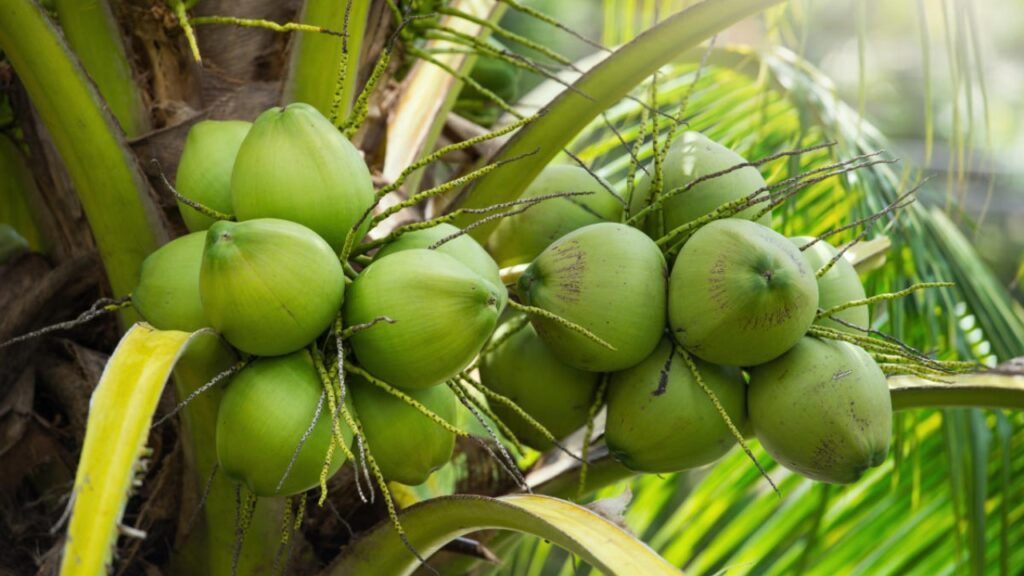One can have a good sip of fresh coconut water popularly known as ‘Kube nsuo’ any time of the day as almost every street in the city has a coconut vendor. In Ghana, coconuts are known as trees with a hundred uses due to the versatile use of the plant.
About 4% of the population earns their income from the coconut industry. Coconut water is known to have a refreshing taste and it is one of the best drinks to combat the heat and also serves as a powerful natural drink for an instant boost of energy. Since coconut water is low in calories and includes natural enzymes and minerals like potassium, some people view it as a miracle drink.
Experts in the Agric industry predict that Ghana’s next major export might be coconuts. Some of the major coconut producers in Ghana are located in the Volta and Western regions, specifically Keta and Glidzi. In Ghana, small-scale farmers choose to grow coconuts on plots of land that are typically three hectares in size. Picking the fruit requires either climbing the palm or using poles with attached knives.
The climate of Ghana is perfect for increasing coconut output for both domestic and international markets. The tropical rainforest region and the coastal belt are excellent growing environments for the crop.
There are many different types of coconuts, but the three most common in Ghana are West Africa Tall Palm, Ghana Yellow Dwarf, and Brazil Green Dwarf. Coconut has a plethora of uses. Every part of the coconut and the tree can be used in different ways. Coconut milk is got from coconut. After the coconut milk has been removed, coconut byproducts are used to make coconut flour. Another valuable product from the coconut tree is coconut husk. The outer shell of the coconut fruit is used to produce a variety of products, including coco peat (an effective alternative to soil), coco husk chips, coco crush, and coir fiber.
Coconut husk has a great capacity to produce various important products for the modern market. Although coconut husks are not consumed, they are mostly used to make potting material for plants and flowers. As a source of soil, a coconut husk is a viable option for greenhouse farming. Coconut husk can absorb nutrients and provide them steadily to plants. Coconut husk decomposes very quickly and gives good soil enrichment to the plants.
Coconut husks can be used as firewood. Pure Virgin Coconut Oil is derived from coconut as well. Aside from food, coconuts are used in soaps and cosmetics making. The leaves of the coconut palm are used for thatch or are woven into baskets, mats, and clothing.
The coconut palm is regarded as beneficial to health. It is regarded as a source of healthy fat. Fiber and protein are present in the “flesh.” The edible white flesh lining also known as the “kernel,” is known as coconut meat. Medium chain fatty acids (MCFAs), which are abundant in coconut meat contain antimicrobial properties. Consuming coconut meat can help reduce some of the bad bacteria in your mouth, safeguard your gums and teeth from infection or cavities, and improve your oral health. However, it is not a replacement for good dental hygiene.
Coconut is a fantastic source of fiber that is easy on the stomach and filling. Potassium, a mineral that aids in balancing sodium levels in the body and controlling blood pressure, is present in coconut water and is a good source of it.
Because coconut oil enhances the skin barrier function (the capacity of the skin to keep water in and irritants out), it can help seal moisture into the skin to cure dryness and address eczema.
When used in moderation, coconut products including milk, water, cream, and flour can be a healthy addition to your diet. Make sure your coconut choices are in line with your goals because coconut can be high in calories and saturated fat.

